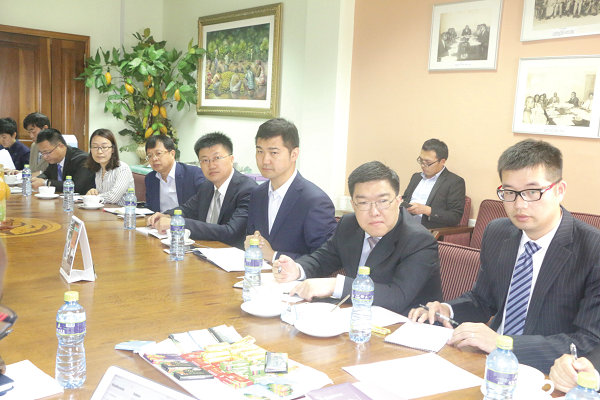
COCOBOD to establish cocoa processing factory at Sefwi Wiawso
The Ghana Cocoa Board (COCOBOD) is to establish a $60 million cocoa processing factory at Sefwi Wiawso in the Western Region to process 40,000 metric tonnes of cocoa beans every year for export, mainly to the Chinese market.
Thirty-five million dollars of the amount will be a grant from the Chinese government and the remaining $25 million will come from the COCOBOD as a matching fund.
A team of experts from China are consequently in the country to undertake a feasibility study on the factory before construction works begin.
At a news conference in Accra to welcome the Chinese delegation to the country, the Chief Executive Officer of the COCOBOD, Mr Joseph Boahen Aidoo, said the proposed factory was “one significant outcome” of engagements between the board and the Chinese government that started in September last year.
Why Sefwi
Mr Aidoo said the Minister of Finance, Mr Ken Ofori-Atta, and his Chinese counterpart had already signed for the $35 million grant, making it possible for the feasibility study to commence.
He added that when it was completed, the factory would be owned by the government of Ghana through COCOBOD.
He commended the Chinese government for agreeing to partner with Ghana to establish the factory for the mutual benefit of the two countries.
On why the board chose Sefwi Wiawso to site the factory, Mr Aidoo explained “we want to get closer to the farmers to also have a feel of their labour.”
“We want to touch base with the farmers because when the factory is there, they will see it and will not give their lands out for galamsey,” he added.
The Sefwi Wiawso Municipality is one of the major cocoa growing areas in the country.
As part of the feasibility study, the CEO said the Chinese delegation would visit the site for the factory, which had already been secured.
Domestic processing
The CEO indicated that, unlike some cocoa factories in the country, the proposed one would ran for the entire process, beginning from the primary level through secondary to the tertiary level, where chocolate is the final product.
“For us in Ghana, this is significant,” he told the Chinese delegation, led by the Economic and Commercial Counsellor of the Chinese Embassy in Accra, Mr Chai Zhijing.
Mr Aidoo said recent volatilities in the cocoa industry required that the country found additional markets to the conventional ones in the Americas and Europe.
With demand for processed cocoa at saturation levels in Europe and America, he noted that China presented a golden opportunity given that it was a force to reckon with in Asia, where demand for chocolate and other cocoa products was becoming a sensation.
“The acceptance of the Chinese government to partner with the government of Ghana, therefore, to put up this factory is a major step in realising our objective and vision of expanding the consumption of cocoa,” he said.
He added that the move was also a realisation of President Nana Addo Dankwa Akufo-Addo’s vision of ensuring that Ghana processed more than 50 per cent of its annual cocoa production domestically.
In spite of having an installed capacity of 450,000 tonnes of cocoa per annum, domestic processors process only a little over half, that is, 250,000 annually due to various challenges confronting the business.
Increasing Ghanaian exports
Last year, trade between Ghana and China rose to $6.6 billion, of which $4.8 billion were Chinese exports to the country.
The Economic and Commercial Counsellor of the Chinese Embassy in Accra noted that “it is a little bit unfortunate that China enjoys a trade surplus than Ghana.”
To help reverse the trend, Mr Zhijing said the Chinese government had decided to accept Ghana’s request for a grant to set up a cocoa processing factory.
He said the results of the feasibility study by the Chinese team of experts would provide both governments with the necessary details to work with.
